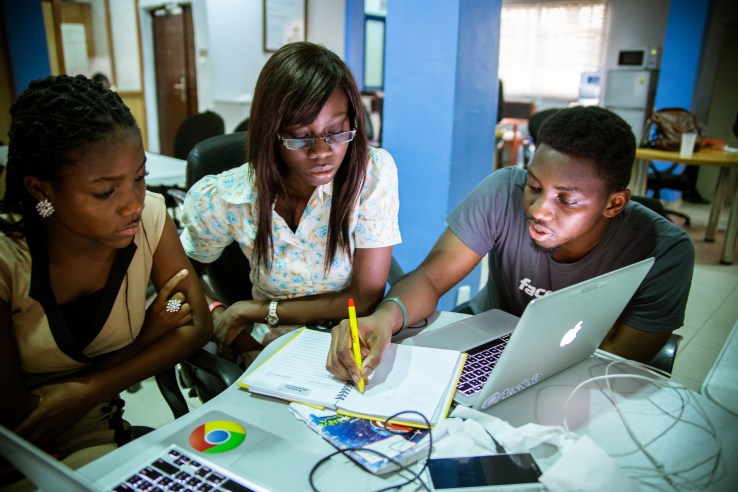SMALL-AND-medium-sized
enterprises (SMEs) are businesses whose personnel numbers fall below
certain limits. SMEs play a major role in most economies, particularly
in developing countries.
174 Views
> Dr Moses Amweelo
However, the working conditions are often very poor and expose employees to a potential wide range of health and safety risks, access to finance is also a key constraint to SMEs’ growth; without it, many SMEs languish and stagnate.
In December 2012, the Bank of Namibia (BoN) granted a licence to SME Bank Namibia Limited, a majority government-owned banking institution that is mandated to provide access to financial services for small and medium Namibian enterprises.
In sub-Saharan African countries with comparable income, small and medium scale enterprises are the most important part of the economy, at least in terms of employment, but often, also in terms of production (Hansohm, Dirk 1996).
Within the small business sector, small formal businesses can be distinguished from informal businesses (Hansohm, Dirk 1996).
These sub-sectors are different in their legal status and more importantly, in the technologies they utilise.
The small formal business sector in Namibia is the smallest in terms of enterprise, number, employment, turnover and value addition. I
t consists of a few hundred businesses providing employment to a few thousand workers.
The informal sector consists of enterprises with small numbers of employed, self-employed and part-time activities. The main occupations in this sector include:
carpentry and joinery
metal fabrication
motor vehicle repairs, including car battery
shoe repairing and cleaning
distribution and re-selling of essential commodities such as sugar, cooking oil, and manufacture of simple agricultural implements in order to earn a living.
The only drawback is that the conditions under which this class of workers work are extremely unhygienic and hazardous in some cases. It is a recognized fact that workers in both the formal and informal sectors are exposed to numerous ergonomic problems of varying kinds and degrees.
Ergonomics in often considered for improving work environment in its material aspects, through the design of appropriate work tools, establishing safety procedures or training at the workplace (Sylvain Biquand, Brice Labille IEA 1997).
In large enterprises, organisational and management consequences of changing the way people perform labour are generally buffered by the diverging positions of management and ergonomics.
“Ergonomics in often considered for improving work environment”
In small companies; the ergonomist can directly link management and workers’ activity, with the opportunity to promote an organisational from work rather than the organisation of work.
The application of ergonomics can
result in numerous improvements to reduce the potential for occupational accidents and diseases and in the enhancement of basic working conditions. Ergonomic work-stations can help prevent multiple risks at the workplace, sucks as risks of accidents, musculoskeletal disorders and stress-induced illness.
According to Sylvain Biquand (IEA 1997), improving work conditions together with quality and productivity could only be achieved through participatory design of work environment, based on accurate knowledge of real situations and incidents faced during production.
This is the minimal commitment of an agronomist’s intervention.
However, as a process, continuous improvements of work conditions and productivity should be based on:
● Acknowledging, rather than denying, at all decision levels, that a variety of distinct interests are at work in the enterprise each with its own rational needs. The machine should be maintainable and useably, changing demands of the market should be met, people should work (in their physiological, psychological and sociological diversity), etc. The agronomist should provide facts as well as organisational tools for debating and co-ordinating intrinsically different perspectives.
● Recognizing the organisational value of work activity.
Through interfacing with the variability of concrete situations, work activity is the place of constant reactions and adjustment that should be transformed through appropriate organisational into reactivity and adjustability. Ensuring work activity to remain the motor of change gives a strategic edge to the enterprise through a better touch with reality leading to more liable foresight, and renewed involvement of employees.
Further, ergonomic interventions are generally suited to involving people at the workplace because the interventions directly concern work methods and equipment encountered daily by these people.
An International Labour Organisation (ILO) research has shown that in applying ergonomics in small-scale industries, low-cost solutions have a particular place. Many small-scale producers have shown their capacity to innovate work process, sometimes proving solutions to occupational health and safety problems.
The ILO researchers in 1987compiled and documented 100 examples of “low-cost ways of improving working conditions” in Asia, and similar work are in progress in East Africa.
While this capacity should be tapped, it is not realistic to rely totally on the initiative and capacity of small-scale producers and employers to solve problems in the work environment.
If they do not have the money, skills, mobility or time to resolve hazards associated with the use of equipment, the responsibility shifts to the manufacturers who furnish the sector.
The inputs to small-scales procedures should incorporate, as far as possible, basic safety features in design, low-cost, use of local material, easy maintenance and affordable, widely distributed spare parts. Labelling and safety instructions should be adequate and should be written in local languages.



